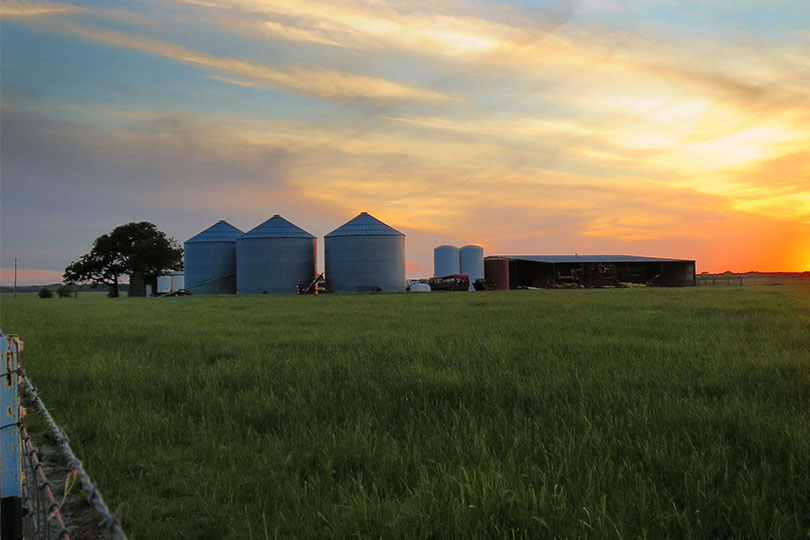Should a person gift the farm before death to avoid the complexity of probate and the estate tax? Probably not.
The family farm occupies a unique position in Washington state estate taxation. It is arguably one of the best assets to own at death for a wealthy family. It has the benefit of both protections from the estate tax while still garnering an income tax boon with a tax basis step-up at death allowing the virtual income-tax-free sale of property after death. This article digs into the concept a little deeper.
First, a reminder on the applicable estate taxes. For 2019, the federal government imposes an estate tax on estates valued at more than $11.4M and Washington state imposes the estate tax on estates valued at over $2.193M. As is clearly evident, the Washington estate tax hits many more people in Washington than the federal estate tax.
One option to avoid probate and the application of Washington’s estate tax is to gift property before death. This is a common technique in estate planning, especially as it relates to estate tax reduction. But, gifting would not likely maximize tax benefits for the Washington farmer from an income tax point of view.
At death, there is a little-known tax benefit that the federal government provides. It is an adjustment to tax basis and it can have a profound effect on the taxation of the assets owned at death. The tax code provides a boon for individuals with capital assets (think stocks, land, buildings, real estate, farms, etc.). That is, at death, the asset gets a new basis equal to its then current fair market value. Take the example of a farm—if it is sold after death, it gets a new tax basis equal to the then current fair market value. Accordingly, when it is sold for that current fair market value, there is no income-tax owing. This means that when sold at the then-current fair market value, there will be zero income tax assessed on the sale of the capital asset after death. Conversely, if the property is gifted prior to death, it receives no such tax basis step-up and a sale could incur a substantial income tax bill.
But, by keeping the property until death and not gifting, the farmer might expose the estate to the Washington estate tax. Luckily for the farmer, Washington state provides relief for the farmer from the Washington estate tax while still allowing the farm to qualify for the federal step-up in tax basis.
The stereotypical farmer is “land rich but cash poor.” The theory then is that it is burdensome for family farms to pay the Washington state estate tax. At the same time perhaps the legislature wanted to provide an incentive for the retention of family farms.
The relevant rules are contained in RCW 83.100.046 as well as in the associated WAC 458-57-155. Those two bodies of law lay out the precise rules that allow the farm deduction and the stringent requirements that must be met. But, if the farm meets the qualifications, then for purposes of determining the Washington taxable estate (i.e. whether and to what extent the estate is subject to the Washington estate tax), a deduction is allowed for the total value of the farm.
For example, assume that Farmer A has an estate valued at $11M, of which $10M is the value of the farm that meets all the requirements contained in both WAC 458-57-155 and RCW 83.100.46. Assume further that Farmer A passes away. Then that estate would pay zero estate tax under federal law (as it is under the current credit amount) and zero estate tax under the state of Washington estate tax (even though it is approximately $9M over the applicable exemption amount). At the same time, the farmer’s farm is still entitled to the step up in tax basis. Accordingly, the farmer’s estate avoids the imposition of the estate tax while at the same time benefiting for a later reduction in income tax for his heirs.
The family farm can produce benefits beyond its crops with thoughtful planning and utilization of current tax laws. It is important to note that not every farm and not every farmer will qualify for this generous deduction. As always, it is important to work with a qualified attorney and CPA to properly plan the best course of action for any individual estate plan.
390572-2
* Licensed, not practicing.
The opinions voiced in this material are for general information only and not intended to provide specific advice or recommendations for any individual or entity. This information is not intended to be a substitute for specific individualized tax or legal advice. We suggest that you discuss your specific situation with a qualified tax or legal advisor.
Securities offered through LPL Financial, member FINRA/SIPC. Investment advice offered through Cornerstone Wealth Strategies, Inc., a registered investment advisor and separate entity from LPL Financial.












